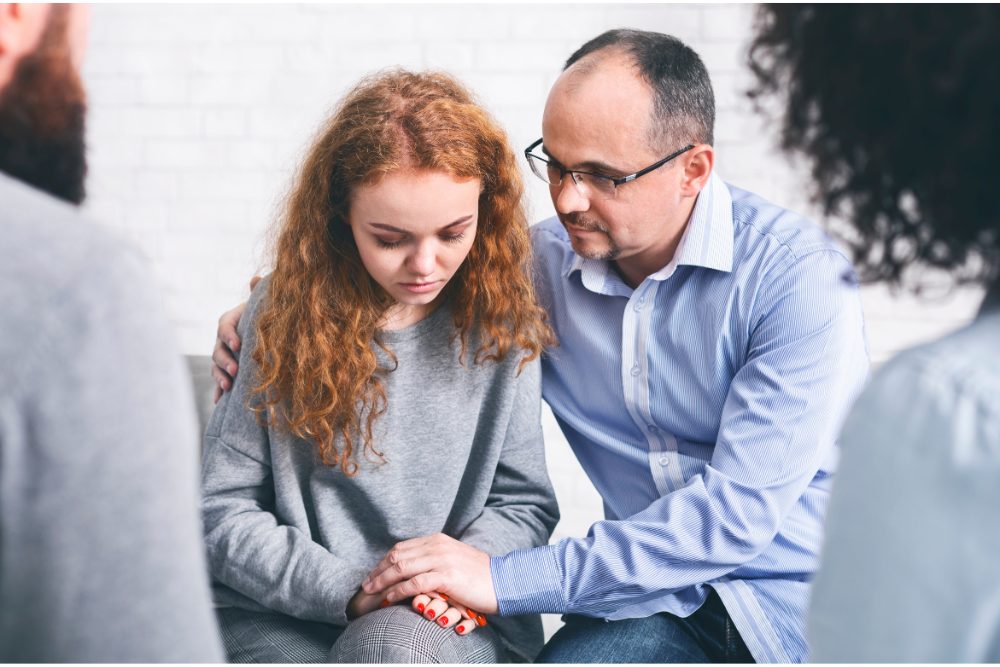Addiction is a complex condition that affects millions of adults worldwide. It is characterized by compulsive reliance on a substance or behavior despite negative consequences. Addiction can take many forms, including substance use disorder, where individuals become dependent on drugs and alcohol, and behavioral addictions, such as gambling, internet use, or compulsive shopping.
Addiction doesn’t only impact the individual struggling with it but has a profound effect on their loved ones. Understanding that addiction ‘controls’ a person’s brain is the first step toward providing effective and appropriate support. It is important to recognize that addiction is not a lack of willpower or a moral failing but a medical condition that requires treatment. This gives parents the correct perspective on how to approach their child’s addiction.
Read on with Wellbrook Recovery as we draw on our rich experience in the addiction and mental health field to guide you in the most effective approaches for parents to help a drug-addicted child.
Table of Contents
- Identifying Signs of Addiction in Your Adult Child
- 1. Building Healthy Communication With Your Addicted Child
- 2. Empowerment and Enabling: Understanding the Difference
- 3. Encouraging Treatment and Recovery
- 4. Creating a Supportive Environment at Home
- 5. Prioritizing Your Own Well-Being
- 6. Navigating Relapses and Setbacks
Identifying Signs of Addiction in Your Adult Child
Recognizing addiction in an adult can be challenging, especially when distinguishing between occasional use and problematic behaviors. Addiction often develops gradually, making early signs easy to overlook. Here are some common signs to look out for if you are concerned that your adult child might be grappling with their addiction:
- Increased secrecy or withdrawal from family and friends
- Significant behavioral or personality shifts
- Unexplained financial difficulties
- Neglect of responsibilities or personal care
- Physical changes such as changes in weight, appearance, or health
- Turning to certain substances or behaviors more frequently than intended
- Experiencing cravings or strong physical or psychological urges to use substances
It is important to notice whether substance use is a problem or just occasional use. Some adults may experiment with different substances or engage in certain behaviors without developing an addiction. However, if it disrupts their daily life, relationships, and well-being, it may be time to seek help. Don’t ignore the warning signs.
If you’ve identified these signs, read the following strategies for supporting a child with addiction:
1. Building Healthy Communication With Your Addicted Child
Open, supportive communication is essential when trying to help a child with drug addiction. This is the only way to foster trust and encourage recovery. Addiction is a sensitive topic that needs to be approached with empathy, patience, and honesty. Here are some techniques for effective conversations:
- Time and Place: Discussing addiction should be done in a private and calm space. Do not confront them in a public space or while they are still under the influence.
- Supportive Language: Use terms that will encourage openness and honesty by showing you understand their perspective and validate their feelings. Avoid blaming or shaming and instead express concern and willingness to assist.
- Open-Ended Questions: Use questions that will invite an open dialogue, such as “Can you help me understand what you are going through?” instead of “Why do you keep doing this?”
- Active Listening: Show that you are interested by maintaining eye contact, nodding, and asking questions. Listen without judgment and avoid interruptions.
2. Empowerment and Enabling: Understanding the Difference
Seeing your child struggling with addiction is hard, and while it may sound counterproductive, sometimes helping them is not actually helping them. This means that your parental instinct may be to protect and provide your child with everything they need, but there is a fine line between supporting your child and enabling them to continue these negative patterns.
When it comes to addiction, giving too much protects them from seeing the negative consequences of their actions. Empowering your child gives them the encouragement they need to take responsibility for their actions. However, enabling behaviors, such as contributing to financial support, taking over their responsibilities, or covering up for their mistakes, can inadvertently prolong the addiction.
Empowerment, on the other hand, involves offering support that encourages accountability and long-term recovery. It means expressing love and concern while setting healthy boundaries and encouraging your adult child to take responsibility for their actions.
Empowering your child includes:
- Encouraging professional intervention
- Setting clear boundaries to what you will and will not tolerate
- Encouraging their recovery efforts and celebrating the progress they make
- Allowing them to face the consequences of their addiction
3. Encouraging Treatment and Recovery
Standing by a child struggling with addiction can be challenging, especially if they are resistant to help. While you cannot force them to change or seek professional interventions, the best way to help a drug-addicted child is to offer guidance, encouragement, and resources to make recovery more accessible.
Here are some ways you can support them:
- Present Options: Research available addiction help for your child and present the options, such as rehabilitation centers, outpatient programs, and support groups.
- Express Concern: Share your concerns about their health and well-being without judgment. Let them know that you want to see them healthy and happy.
- Be Patient: Seeking treatment is a personal decision. It is important to be patient and motivating, even if they aren’t ready to take that step.
- Involve Professionals: Consider involving a counselor or therapist who can provide expert guidance throughout this journey.
4. Creating a Supportive Environment at Home
A comforting and understanding environment at home can significantly aid your struggling adult child in navigating the recovery process.
Here are some essential aspects of promoting growth and accountability:
- Establishing Household Rules: Set clear rules regarding behavior and substance use in the house. These rules need to be openly communicated and reinforced to ensure everyone in the house feels safe and respected.
- Set Healthy Boundaries: Defining acceptable and unacceptable behaviors creates a sense of structure for everyone involved.
- Fostering a Positive Atmosphere: Encourage positive interactions and activities that promote a healthy lifestyle. This could include family meals, exercise, or hobbies they enjoy.
- Creating an Understanding Environment: Acknowledge progress and provide a space where they feel comfortable to talk. This includes being mindful of potential triggers that could lead to relapse, such as removing substances from the house.

5. Prioritizing Your Own Well-Being
It is easy to become so focused on your child’s struggles that you neglect your own needs. Supporting a child’s fight with addiction can be emotionally and physically draining. Self-care is important for your health and enables you to continue supporting your child.
Self-care includes engaging in activities that you enjoy and help you relax, such as hobbies, spending time with friends, and meditating. Joining support groups or going to therapy is also recommended to empower you in navigating the complexities of addiction and provide valuable advice and guidance. Taking time for yourself is not being selfish; it’s a crucial component of learning how to help an addicted adult child and a necessity for maintaining strength and resilience throughout this journey.
6. Navigating Relapses and Setbacks
Relapses are a common part of the recovery journey and can be disheartening for both you and your child.
Here are some strategies to cope with relapses and reinforce long-term recovery:
- Maintain Hope: Relapses can be discouraging, but they do not mean failure. The recovery process is long and challenging and involves setbacks, but it is essential to remain hopeful and encouraging.
- Encourage Continuing Treatment: Help them recognize that relapses are just a sign that their recovery plan needs to be tweaked, whether that means therapy, a support group, or rehab.
- Stay Supportive: Continue offering emotional strength and encouragement. During a relapse, your child needs your support the most.
- Seek Professional Help: Recovery is a lifelong journey, so continuing with regular therapy or support group meetings is encouraged. This prevents future relapses and builds the foundations for a stable future.
Concluding Thoughts on Supporting an Addicted Adult Child
Addiction recovery is not an overnight process. Positive change takes time, effort, and patience. As a parent, watching your child (of any age) struggle is challenging, but providing love, guidance, and encouragement is the best way you can help them take responsibility for their healing.
Just as they need support, so do you. Seeking help through therapy, support groups, or trusted friends can assist you in maintaining the strength you need to continue this journey. With understanding, open communication, and a commitment to healthy boundaries, both you and your addicted child can move toward a more hopeful future.
Contact our team of addiction treatment experts to learn more about how to help an addicted adult child and explore suitable treatment options for your child.














